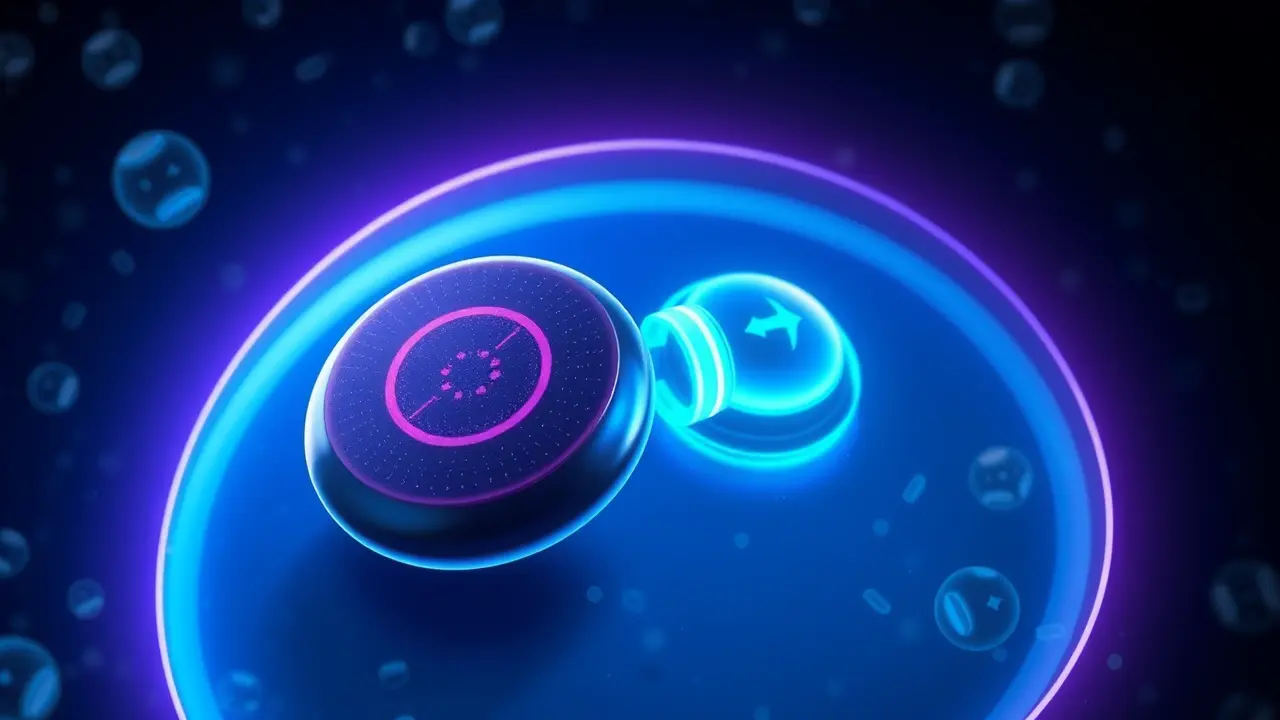
SciencemedicineCancer Research
Tiny implant wipes out bladder cancer in 82% of patients
KE
Kevin White
5 hours ago7 min read
In a development that feels ripped from the pages of a near-future medical thriller, a tiny implant named TAR-200 is fundamentally rewriting the treatment playbook for high-risk bladder cancer, achieving a staggering complete tumor eradication in 82% of patients. This isn't just an incremental improvement; it's a paradigm shift, moving the battlefield from the surgeon's scalpel to the cellular level.The genius of TAR-200 lies in its elegantly simple, yet biologically sophisticated, mechanism. Unlike traditional intravesical chemotherapy, which involves flushing the bladder with a solution in short, intense cycles that the body rapidly expels, this implant is a miniature, sustained-release drug depot.Placed directly within the bladder, it acts like a microscopic pharmaceutical factory, delivering a consistent, low-dose siege of chemotherapy directly to the tumor microenvironment. This constant exposure prevents cancer cells from entering the recovery and repair phases that often render pulsed therapies less effective, essentially overwhelming their defenses through relentless, targeted pressure.For decades, the standard of care for non-muscle-invasive bladder cancer that recurs or proves aggressive has been radical cystectomy—the complete surgical removal of the bladder. This is a life-altering procedure with profound consequences, often requiring the creation of a urostomy bag and carrying significant risks of complications, incontinence, and sexual dysfunction.The psychological and physical toll on patients is immense. The results from the TAR-200 trials, which have now earned the therapy an FDA Priority Review, signal a potential end to this surgical default for a majority of patients.Imagine the clinical impact: instead of facing a complex, life-changing operation with a lengthy recovery, a patient could receive this implant in a comparatively minor procedure and have their cancer systematically dismantled from the inside out. This is the promise of next-generation biotech—not just treating disease, but rendering its most brutal countermeasures obsolete.The implications ripple far beyond urology. The success of this localized, sustained-release platform validates a broader principle in oncology: that the future of effective cancer treatment may lie less in systemic bombardment and more in intelligent, site-specific drug delivery.We're already seeing similar approaches being explored for glioblastomas with implantable wafers and for pancreatic cancer with targeted nano-particles. TAR-200 is a flagship example of this trend, demonstrating that controlling the 'when' and 'where' of drug delivery can be as critical as the drug itself.From a research perspective, the data prompts fascinating questions. What is the precise molecular mechanism that makes continuous low-dose exposure so devastatingly effective? Could this platform be adapted to deliver immunotherapies or combination drug cocktails, turning the bladder into a personalized bioreactor for cancer destruction? The road ahead will involve scaling production, managing costs, and navigating the regulatory pathway, but the 82% figure is a beacon that is impossible to ignore. We are witnessing a pivotal moment where a piece of miniature hardware is achieving what was once only possible with major, invasive surgery, heralding a new era of precision medicine where the treatment is as intelligent as the disease it is designed to defeat.
#featured
#bladder cancer
#TAR-200
#implant
#chemotherapy
#FDA Priority Review
#tumor elimination
#medical breakthrough
Stay Informed. Act Smarter.
Get weekly highlights, major headlines, and expert insights — then put your knowledge to work in our live prediction markets.
Related News
© 2025 Outpoll Service LTD. All rights reserved.








